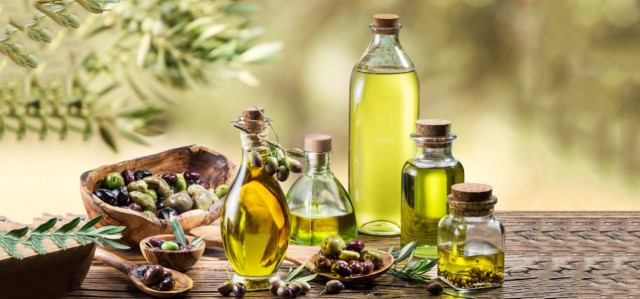4 myths about olive oil debunked
Check them out here!

PHOTO:FILE
But due to a lack of knowledge about this oil, some are reluctant to make it part of their daily lives. Perhaps this is a result of all the crazy marketing out there: Peruse the olive oils in a typical grocery store and you'll be greeted by all kinds of terminology. “Pure” or “extra virgin” or just “virgin…” who’s to know which is better?
To make it easier for you, we’ve listed (and debunked) some of the most common misconceptions people have regarding this Mediterranean elixir. Read on and be on your way to a healthy new you.
1) Myth: If olive oil gets cloudy or solidifies in the refrigerator, it is 100% authentic and of high quality.
Fact: There is no home test to check olive oil for authenticity. Some oils get cloudy in the refrigerator and some don't. Quality is best checked through taste and smell while authenticity is best tested in a properly-equipped lab.
2) Myth: A very green colour indicates high quality olive oil.
Fact: Colour is not an indicator of the oil's quality. Quality olive oil isn't a generic product. Factors like olive variety, growing conditions and country of origin create variability in oil colour - from pale yellow to dark green - and how fast the oil will cloud or solidify in the refrigerator.
Extra-virgin olive oil can protect you from dementia
3) Myth: Heat diminishes olive oil's health benefits so it is best to use extra virgin olive oil "raw" or straight from the bottle.
Fact: The flavour of the oil may change when heated, but the health benefits remain. You can cook with all types of olive oil without losing health benefits because their smoking point is higher than most other cooking oils.
4) Myth: Olive oil cannot be used for cooking, frying and sautéing.
Fact: You can cook on high heat with olive oil. Here, the answer lies in understanding the various grades of olive oil. One can most certainly find three grades of olive oil - extra virgin, classic/pure and extra light and, lastly, pomace, which is a chemically extracted variant of olive oil.
The difference lies in the taste, aroma and smoking point. Extra virgin olive oil has a strong flavour of olives and low smoking point as it is obtained from cold pressing. Pure olive oil is obtained from refining olive oil, so its smoking point is high but has the flavour of olives, so it can be heated and used for cooking pizzas, pastas, sautéing vegetables et al. Extra light has neutral/no flavour of olives and be used for everyday cooking/frying.
Need any more persuasion about the benefits of olive oil?
Have something to add to the story? Share it in the comments below.



















COMMENTS
Comments are moderated and generally will be posted if they are on-topic and not abusive.
For more information, please see our Comments FAQ